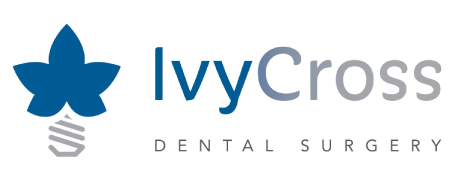PREVENTION
We all know that poor oral hygiene leads to tooth decay and gum disease. Scientific research has now also identified a link between poor oral health and heart disease, atherosclerosis, stroke and some degenerative conditions. For these reasons it is important to have an effective daily routine for cleaning your teeth and gums.
The correct technique for cleaning will be taught to you by your hygienist and/or dental surgeon.
We recommend the use of the following items…
- A good quality rechargeable electric toothbrush used for two minutes twice daily
- A good quality, age appropriate, fluoride-containing toothpaste
- Interdental brushes (of the correct size – your hygienist will help you with this)
- Floss Tape (or equivalent Flossettes)
The treatments, practices and advice given at Ivy Cross Dental Surgery are founded in conventional techniques derived from scientific research and evidence-based Dentistry, Medicine and Surgery.
The following extract is based on a patient leaflet produced by the European Federation of Periodontology and gives some guidance on cleaning. More information can also be found from the British Society of Periodontology in our ‘Important Links’ section.
Bleeding gums are not a ‘natural sign’ and generally indicate poor gum health. This may manifest as blood in your saliva when brushing teeth and can indicate gingivitis, which is reversible with advice and action. However, it may indicate a deep-seated problem called periodontitis, which can cause tooth loss and affect your general health and well-being. Visit your dentist as soon as possible for a diagnosis and advice. It is your choice what to do about it, but gum disease is preventable, and treatment is generally effective, resulting in teeth for life, including greater confidence, self-esteem and quality of life.
- The most effective thing you can do to prevent gingivitis and periodontitis is to remove the bacterial plaque from your teeth by brushing. Your dental team will demonstrate specific techniques. Their professional guidance is vital, just “brushing” may not work
- Ideally you should use a rechargeable electric toothbrush for two minutes, twice daily
- Generally, small-headed brushes with medium bristles are advised, however we don’t know yet if one design is significantly better than another
- You should brush twice a day: ideally before breakfast (and after if you wish to remove food from your teeth) and before bed-time, but allow about 30 minutes after you eat as acids in the food that you consume may soften the enamel slightly
- If your gums are healthy and you wish to prevent the onset of gingivitis, then 2 minutes brushing is advisable, however, if you have gum disease this will be insufficient time
- Daily cleaning between your teeth using special “interdental” brushes is essential for treating and preventing gum disease. Floss can help where the contact points are too small for using interdental brushes
- Your dental hygienist or dentist will advise you on the correct interdental brush type and size, and it is likely that you will need several sizes to clean your entire mouth
- It is vital that you are shown how to use the interdental brushes in your own mouth and that you can demonstrate this to the hygienist to ensure your technique is correct
- Mouth rinses do offer additional benefit to tooth brushing in the management of gingivitis, however they are NOT a substitute for physically removing the plaque or for the amount of time you spend toothbrushing. Their use between brushing may help
- Your dental surgeon and hygienist will help and support you, but it is an effective daily meticulous cleaning routine that will make the most difference to improving your oral health


